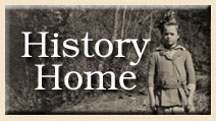


Health and Family
Prior to 1920, the year the Pi Beta Phi Settlement School first acquired
the services of a full-time resident nurse, Gatlinburg residents suffered
from a near complete lack of professional health care services. Herb doctors
and “Granny Women” did their best to cure the sick, care for expectant
mothers, and ensure that children grew up to be strong and healthy adults;
but their methods were based more on superstition than on science, and so
were relatively ineffective against the onslaught of disease and injury so
common to mountain life. Pi Beta Phi’s mission was to break Gatlinburg
residents’ dependence on traditional healers, and then convince them
to adopt modern “preventative” solutions when addressing their
health care needs. The fraternity accomplished this over the course of the
next forty-five years (1920-1965), albeit more slowly than members might have
wished.
In the essays that follow, we will explore the many facets of the Pi Beta
Phi Health Care Program, including the medical problems faced by Gatlinburg
residents; the history of the Jennie Nicol Memorial Hospital (Gatlinburg’s
first fully-modern health care facility); and the challenges of the settlement
school nurses.
Essays
Health & Family in Southern Appalachia: HTML | PDF
Jennie Nicol Memorial Health Center: HTML | PDF
Pi Beta Phi Health Care Program: HTML | PDF
 |
|